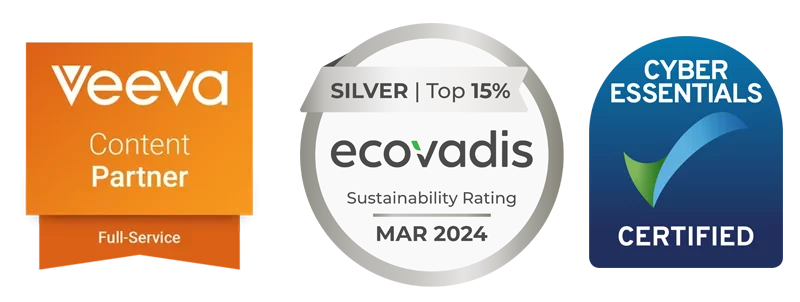
Éanna Connaughton, Senior Medical Writer shares his experiences and perspectives of advisory boards, and highlights some of the other options we offer for those seeking insight from healthcare providers (HCPs).
Despite being commonplace, advisory boards are an important activity for medical device and pharmaceutical companies, providing an opportunity to bring together influential and knowledgeable stakeholders. These meetings can be used to inform strategy and guide activities across a range of functions and disciplines, from preclinical, to payer/market access, to sales and marketing.
It is likely that advisory boards will always be required during medical device and pharmaceutical development and it is, therefore, paramount that regulatory compliance is maintained. One clear rationale for a traditional advisory board continues to be a well‑considered mix of relevant key opinion leaders meeting to consider complex evidence. In all cases, an effective Chair and considered recruitment of delegates are of critical value and importance to the meeting.
My previous experience of advisory boards is largely based on international meetings; a series of meetings designed to inform early‑stage preclinical strategy. Typical objectives included the validation of clinical endpoints considering the views and guidance of regulatory bodies, patient inclusion criteria, efficacy/safety results, and differentiation versus other established and pipeline therapies.
Since joining Mtech Access, I have been involved in advisory boards facilitated by our NHS Insights and Interaction team which delved into specific NHS processes and paradigms related to the implementation of guidance, treatments or services. These meetings were a real eye-opener, providing NHS insights that are not typically captured in any publicly accessible resource.
However, advisory board meetings, while highly useful, are not without their challenges:
- Regulatory – there are extensive and necessary challenges to ensure compliance
- Cost – travel, location, and venue expenses can be substantial
- Method – do group dynamics, for example, influence discussion and advice on the day?
- Value – can you really make key decisions based upon a one-off meeting, comprising six to eight participants, who were selected on the basis that they were the only ones able and willing to attend a meeting on a set day and at a set place?
- COVID‑19 – a new challenge on this list, particularly regarding travel restriction and access to HCPs
Advisory boards are widely seen as the default option for teams looking to inform outcomes of strategic importance. However, they are a resource‑intensive activity and there are several other options worth exploring (particularly considering the restrictions we are all operating under during the COVID‑19 pandemic). Furthermore, there is a variety of other scenarios where companies may wish to gather advice or information from groups of HCPs.
For those seeking HCP insight in the UK, our NHS Insights and Interaction team have a range of alternative solutions that can often be more cost effective and deliver more valued outcomes for clients. In light of COVID‑19 travel restrictions, our NHS Insights and Interaction team have adapted and modified these alternative solutions to run without the need for classical face‑to‑face interaction. The team has recently successfully facilitated virtual offerings of these meetings and have more in the pipeline.
These following three options are all designed and delivered in accordance with regulatory requirements, and have been adapted to run virtually given the restrictions in place for COVID‑19:
- Meet and Move Forward – A rapid, interactive meeting method originally designed within NHS roles and developed over 15 years and with extensive use across a variety of disease areas. A multi‑disciplinary group of HCPs from within a shared geography or community of practice work together through facilitated exercises to solve a puzzle. Typically, this ends with the design of a new pathway of care, the creation of a key business case, or initiation of a clinical role that unlocks an obstacle. Run in a ward, practice, postgraduate centre, or seminar room over an hour or a full day.
- Experience Days – We escort you on a customised virtual tour of a selected health economy arranging for a small team to experience a slice of the real NHS. Depending upon your portfolio, this can include any environment or role across the spectrum of care. This is an educational experience and not a promotional one. The benefits are immediate in terms of key learnings about what really matters to HCPs and their patients, as well as the way that can vary. This essentially reverses the conventional advisory board method and ensures that your internal teams receive truly accurate environmental intelligence in a real‑world manner.
- Strategy Huddles – At a time when the NHS is changing on a weekly, if not daily basis, strategy planning is increasingly difficult. This is compounded by an inability to engage directly with NHS stakeholders. Our network of NHS Faculty and Associates still want to engage in interesting and positive work. Strategy Huddles bring together senior NHS people at the forefront of change with your leadership team to meet virtually and talk candidly about how the environment will differ post‑COVID‑19, and how you can adapt to hit the ground running.
Our close engagement with the NHS and HCPs indicates to us that participants enjoy these methods, that they are able to express themselves fully, and that they gain more from the events themselves. At Mtech Access, we are continually adapting to ensure we can deliver quality for our clients; if you are interested in learning more about our NHS Insights and Interaction team please email nhsinsights@mtechaccess.co.uk.

